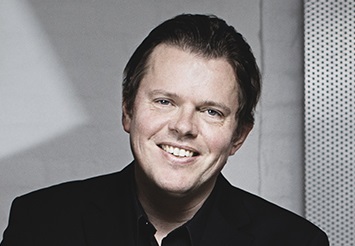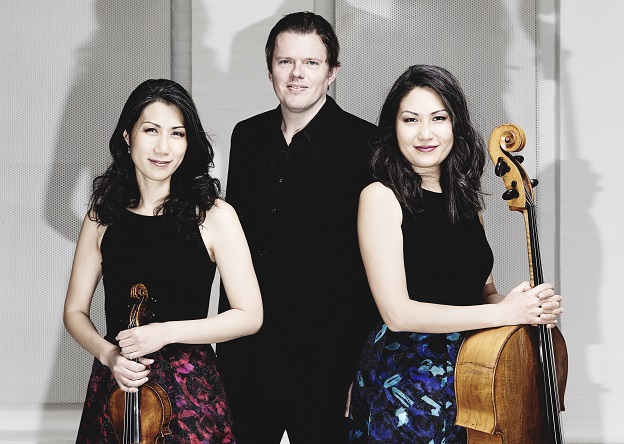You have referred to the coming-together of the Trio con Brio Copenhagen as the bringing together of “two pairs”. Meaning, of course, the sisters, Soo-Kyung Hong (cello) and Soo-Jin Hong (violin); and then the husband and wife pair of yourself with Soo-Kyung. How did that evolve?
Of course, the sisters had played together since childhood, then of course a husband-and-wife relationship is special in its own way, and so we all had these dynamics of unique understandings.
And are you still led by that idea, of the two pairs together?
Ideas evolve, and now, we discovered that there is another pairing – that between the trio as an entity and the audience.
So do you find that you alter your playing depending on the audience?
They have an effect, but we now have a clear identity within ourselves, and I think it’s important for the audience when they come to know that they’re getting our way of making music rather than something we are simply going to adjust depending on how the audience feels to us. That way, they are coming to hear the trio’s interpretation, nobody else’s, and an interpretation that we have built up to and that is part of this journey we are on together.
Does that then give you a kind of freedom?
Yes, because it becomes a true and specific encounter, between our identity and theirs as an audience. And that is real communication, which can make you play even better. It is both a freedom and a fulfillment.
At a certain point early in your career, you all made a conscious decision to stop entering competitions. Was that a question of freedom as well?
In a way. We stopped because we had won all the major competitions and we kept winning – it was a fantastic thing for us and of course we could just have carried on going from competition to competition for a while longer! But at some stage you have to leave safety behind and say, we’re past that stage now and it’s time to strike out on our journey. Thankfully the trio took off in ‘the real world’ and we haven’t regretted it!
And now the trio is approaching its twentieth anniversary, and Beethoven calls!
Beethoven has always called us! His trios have been at the core of our work for all the time we have been together. With works that profound and multi-layered your approach is always changing; at the very least you change your perspectives on these pieces as you reach different stages of life and experience. But 20 years seemed like a benchmark, so we decided that now was as good a time as any to record the complete Beethoven trios. They’re being released by Orchid Classics, as three albums over the course of a year. And we’re performing various complete cycles as concerts, as well, during and around that time.
Let me ask you a question that is, I suppose, both technical and very much artistic. It sounds as though the three of you are very concentrated in your playing approach, and you speak of the trio almost as a single entity, or even organism.
Yes, because a piano trio has to think that way to be an authentic trio; you cannot just bring together three soloists who occasionally play trios and expect them to understand what trio playing is in the same way. It takes a dedication to the form. You have to grow together.
So how do you do that? I mean, in the moment of performance, how do you all stay so in touch with each other, almost so as to be a single instrument.
There is something about the configuration of a trio, about that triangle, that somehow focuses and amplifies the special understanding that we all have as people and as musicians. It is almost like there is a point of energy in the space between us as we play, and everything we’re all doing somehow meets at that point, becomes something more than any of us, and projects out to the audience with confidence and meaning and strength. Does that sound new-age?!
It sounds like a way to try and focus that special quality in performance that is always somewhat abstract and even spiritual, and something, I would think, that the musician controls and yet never quite does, and that itself can drive a performance to great heights.
My wife has another way of looking at it. She says that if you throw three fish into a stream, they will instinctively stay close together, and then the current will push you where you are going.



















